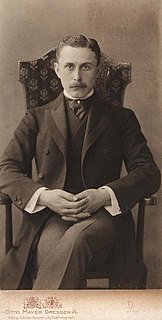A Quote by Miguel de Cervantes
Related Quotes
God, Who is by nature good and dispassionate, loves all men equally as His handiwork. But He glorifies the virtuous man because in his will he is united to God. At the same time, in His goodness he is merciful to the sinner and by chastising him in this life brings him back to the path of virtue. Similarly, a man of good and dispassionate judgment also loves all men equally. He loves the virtuous man because of his nature and the probity of his intention; and he loves the sinner, too, because of his nature and because in his compassion he pities him for foolishly stumbling in darkness.
Nobody wants somebody who wants them for what they have or the position their in- you want somebody who wants you for you. In case it all goes crazy and it all turns to dust. I want somebody who loves me in the welfare line, eating gumbo, eating fish,black eyed peas and rice. I want somebody that loves me. God wants you to love him, not his cars, not his house, not his blessing- love him.
Sweet is the rose, but grows upon a brere;
Sweet is the juniper, but sharp his bough;
Sweet is the eglantine, but stiketh nere;
Sweet is the firbloome, but its braunches rough;
Sweet is the cypress, but its rynd is tough;
Sweet is the nut, but bitter is his pill;
Sweet is the broome-flowre, but yet sowre enough;
And sweet is moly, but his root is ill.
To Whom does our God say, 'in our image' (Gen. 1:26), to whom if it is not to Him who is 'the brightness of His glory and the express image of His Person' (Heb. 1:3), 'the image of the invisible God' (Col. 1:15)? It is then to His living image, to Him Who has said 'I and My Father are one' (Jn. 10:30), 'He who has seen Me has seen the Father' (Jn. 14:9), that God says, 'Let us make man in our image'.
Every man should write a brief history of his life: his parentage, his birth, his religion, when he was baptized and by whom, when ordained, what to, and by whom-give a brief sketch of all his missions and of all his official acts and the dealings of God with him. Then if he were to die and the historians wished to publish his history, they would have something to go by.
No marvel if the worldling escape earthly afflictions. God corrects him not. He is base born and begot. God will not do him the favour to whip him. The world afflicts him not, because it loves him: for each man is indulgent to his own. God uses not the rod where He means to use the Word. The pillory or scourge is for those malefactors that shall escape execution.
Nowadays this is the way everyone loves himself; people wish to live with God in consolations and repose, in wealth and power, and to share the fruition of his glory. We all indeed wish to be God with God, but God knows there are few of us who want to live as men with his Humanity, or want to carry his cross with him, or want to hang on the cross with him and pay humanity's debt to the full.







































